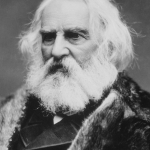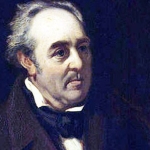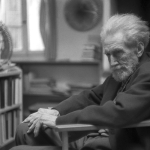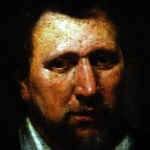An old man in a lodge within a park;
The chamber walls depicted all around
With portraitures of huntsman, hawk, and hound,
And the hurt deer. He listeneth to the lark,
Of painted glass in leaden lattice bound;
He listeneth and he laugheth at the sound,
Then writeth in a book like any clerk.
He is the poet of the dawn, who wrote
The Canterbury Tales, and his old age
Made beautiful with song; and as I read
I hear the crowing cock, I hear the note
Of lark and linnet, and from every page
Rise odors of ploughed field or flowery mead.







Comment form: